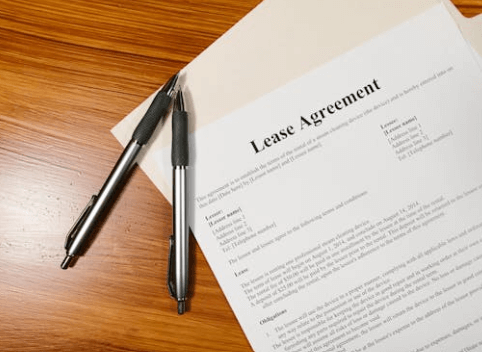Navigating the intricacies of rental agreements can prove to be quite a challenge, especially when considering the possibility of being on two leases at once in Florida. You might need to occupy two residences simultaneously due to work, family needs, or other circumstances. Understanding the legal implications, lease terms, and financial responsibilities of holding two leases at once in Florida is crucial to making informed decisions. This blog will explore the feasibility, potential pitfalls, and key considerations for managing dual leases in the Sunshine State.
Real estate investors Steve Daria and Joleigh emphasize the importance of understanding lease terms and local regulations when considering dual leases in Florida. They note that thorough planning and financial preparedness are vital to avoid pitfalls. Seeking guidance from a proficient real estate attorney can further ensure you navigate the complexities of holding two leases effectively.
Understanding Lease Agreements
Lease agreements are obligatory contracts between a landlord and a tenant to itemize the terms and conditions of renting a property.
These agreements detail essential aspects such as the rental amount, duration of the lease, and the responsibilities of both parties.
In Florida, lease agreements are governed by state laws created to protect the rights and interests of landlords and tenants, ensuring fair and lawful practices in rental arrangements.

What Does It Mean to Be on Two Leases?
Being on two leases at once means that an individual is legally obligated to abide by the terms and conditions of two separate rental agreements simultaneously.
This situation can arise due to different reasons, such as relocating for work, maintaining a second home, or investing in rental properties.
Each lease agreement will have its own set of rules, responsibilities, and financial commitments, which the tenant must fulfill.
Managing two leases requires careful planning and budgeting to ensure that rent payments and other obligations are met for both properties.
Legal Considerations for Signing Two Leases
Understanding the legal implications of being on two leases at once in Florida is essential.
Here are some key points to consider:
Contractual Obligations
Being on two leases means you are legally bound to fulfill the terms of both agreements.
Non-compliance with the terms can lead to legal consequences, such as eviction or financial penalties.
Financial Responsibility
You must ensure you have the financial capacity to meet the rental obligations of both leases.
This includes paying rent, utilities, and any other associated costs.
Tenant Rights and Protections
Florida law provides specific protections for tenants, such as the right to a habitable living environment and protection against unlawful eviction.
Understanding these rights can help you better manage your lease agreements.
Get An Offer Today, Sell In A Matter Of Days
Strategies for Managing Multiple Leases
Successfully managing two leases at once in Florida requires careful planning and organization.
Here are some strategies to help you navigate this process:
Create a Budget
- Assess Your Finances: Assess if you have the financial capacity to cover the rental fees for both properties. Include other expenses like utilities, maintenance, and insurance.
- Allocate Funds: Set aside specific funds for each lease to ensure timely payments. Consider putting up automatic payments to prevent late fees.
Keep Track of Important Dates
- Lease Start and End Dates: Mark the start and end dates of both leases on your calendar. Be aware of any renewal or termination deadlines.
- Payment Due Dates: Keep track of rent due dates to avoid late payments. Include other financial obligations, such as utility bills.
Communicate with Landlords
- Maintain Open Communication: Keep both landlords informed about your situation. Address any issues promptly to maintain a good relationship.
- Negotiate Terms: If possible, negotiate flexible terms with your landlords. This can include adjusting payment schedules or extending lease durations.
Tips for Tenants Considering Two Leases
When signing two leases at once in Florida, here are some tips to help you make an informed decision:
Evaluate Your Needs
- Personal and Professional Requirements: Consider why you need two leases and how it will benefit you. Assess whether it is a temporary solution or a long-term arrangement.
- Convenience and Accessibility: Ensure both properties are conveniently located and accessible. Consider factors such as proximity to work, family, and amenities.
Seek Legal Advice
- Consult a Real Estate Attorney: A real estate attorney can provide legal insights and advice. They can help you know your rights and obligations under each lease.
- Review Both Leases: Have an attorney review both lease agreements before signing. Ensure there are no conflicting terms that could lead to legal issues.

Plan for Emergencies
- Emergency Fund: Set aside a reserve fund to cover unexpected expenses. This can include repairs, medical bills, or temporary relocation costs.
- Backup Plan: Have a backup plan in case you need to terminate one of the leases. This can include subletting or assigning the lease to another tenant.
Examples of Managing Two Leases
Here are some examples of individuals successfully managing two leases at once in Florida:
- Professional Relocation: Sarah moved to Miami for a new job but maintained her apartment in Orlando. She negotiated flexible lease terms with her landlords to manage both properties.
- Investment Property: John invested in a rental property while continuing to live in his current residence. He used the rental income from the investment property to cover the costs of both leases.
- Family Needs: Emily needed to support her elderly parents in another city. She rented an apartment close to her parents while maintaining her family home.
Conclusion
Holding two leases at once in Florida requires careful planning, legal knowledge, and effective communication. Ready to take the next step? Whether you’re a property seller, Florida resident, real estate investor, land seller, or house buyer, understanding the intricacies of leasing can empower you to make informed decisions.
**NOTICE: Please note that the content presented in this post is intended solely for informational and educational purposes. It should not be construed as legal or financial advice or relied upon as a replacement for consultation with a qualified attorney or CPA. For specific guidance on legal or financial matters, readers are encouraged to seek professional assistance from an attorney, CPA, or other appropriate professional regarding the subject matter.

